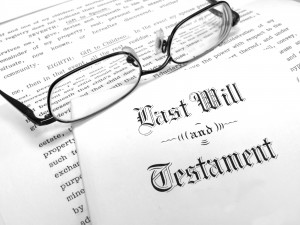

Medicare and Medicaid sound the same, but they are as different as the two beauty queens you see here. Frankly, it’s surprising how many people don’t recognize the difference between the two.
Few people realize the limitations of
Medicare—which winds up costing them a substantial loss of dignity if or when they get hit with long term care expenses. Medicare is the federal health insurance program provided on behalf of persons who are over the age of 65, blind, and/or disabled. Medicare does not provide long term care benefits (nursing home care, for instance).
Medicaid, which is a poverty health care program, pays for 50% of the nursing home care in America today.
Medicare only cares about short-term or “acute care” health care.
Medicare only cares about your health care expenses if you can get well! Medicare does NOT provide care when a person is diagnosed with a long-term illness and needs nursing home care. Essentially, our senior citizen health care is based on a “diagnosis lottery.” If you are “lucky enough” to have a heart attack or diabetes, then you are covered by Medicare. You are out of luck if you are diagnosed with Alzheimer’s, Parkinson’s, Huntington’s disease, or anything else that lands you in a nursing home. If you need a nursing home and you are not impoverished, you are on your own dime!
So, unfortunately for seniors, the blind, and disabled persons living in 2010, the acute care model does not help them when they are afflicted with long term care costs. Medicaid is the safety net for the impoverished. Once you become sufficiently impoverished, then Medicaid is designed to provide care for you. To qualify for Medicaid nursing home benefits you must be very ill and have no more than $2,000 total assets.
An elder law attorney knows the ins and outs of the public benefit system and can provide the client with solutions that help to fulfill the requirements of the law and still provide a better future for themselves or their loved ones. We help clients fulfill their legal obligations and avoid unnecessary impoverishment due to long term care expenses. If you want more information regarding a specific client situation, please
contact us.
 Recently, at two different MCLE (continuing legal education) presentations, I spoke on the “Elder Law Essentials.” The goal of the presentation was to distinguish the solutions of elder law vs. the solutions underlying traditional estate planning.
I was originally trained as a tax attorney, and my principal estate planning solutions were motivated by the client’s desires to:
Recently, at two different MCLE (continuing legal education) presentations, I spoke on the “Elder Law Essentials.” The goal of the presentation was to distinguish the solutions of elder law vs. the solutions underlying traditional estate planning.
I was originally trained as a tax attorney, and my principal estate planning solutions were motivated by the client’s desires to:


